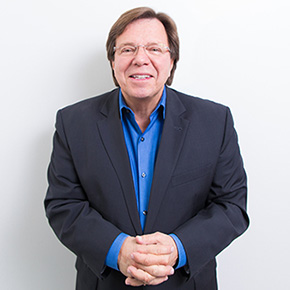As a native Floridian who has closely watched our state’s political campaigns for decades, it’s worth sharing some meaningful trends that seem to hold fast over the years. Simply stated, the ultimate winner of this year’s gubernatorial race from either the Republican or Democratic parties will have to own the best mix of the key three “Ms”: message, money, and math.
We all have watched in different election cycles as Democrats and Republicans spar among themselves in primary races and then with the opposing party’s nominee for the general election on important issues facing Floridians today. The statewide televised debate on August 2 among the five Democratic candidates for governor only served to reinforce the value of debates that put all candidates on a single stage at the same time. Even with time so precious for each candidate to get their say in a mere 60 minutes, some keys to victory already are clearly evident.
Our firm was proud to volunteer its services to assemble the statewide consortium of television stations that broadcast the Democratic debate in each of Florida’s 10 media markets. For some candidates, it was the first and best chance for voters statewide to get to know them. (A similar significant one-hour statewide televised debate opportunity offered equally to the 2018 Republican candidates for governor was unfortunately declined.)
This year, no one Democrat appears to yet have a corner on all three “M” factors, so primary voters will have to balance their own interests about which candidate they like the best with a healthy dose of political pragmatism about which one can actually win in November against a well-financed, as usual, Republican nominee. In doing so, they will choose among these viable choices:
- Tallahassee Mayor Andrew Gillum, who has consistently performed as the best and strongest communicator – calm, confident, passionate — though his message is the most liberal and may be most-challenged to win “crossover” appeal votes in a general election.
- Former Congresswoman Gwen Graham, the only woman in the race, whose mainstream appeal is moderation and gravitas – possibly the combination needed to win it all.
- Palm Beach County billionaire Jeff Greene, who is willing to outspend a Republican nominee to get a consistent paid message out that might buy the math and path needed to win.
- Winter Park entrepreneur Chris King, whose ideas are often new and different – but have fallen short of building broad support.
- Former Miami Beach Mayor Philip Levine, a dynamic and tested early frontrunner who shares a lot of views with his peer candidates but who has lost the most ground with Greene’s late entry into the race.
The two Republican candidates, Adam Putnam and Ron DeSantis, come from similar very conservative extreme points on their party’s political spectrum. That makes it unlikely that either of them will appeal to many mainstream, moderate or liberal Democrats in a general election. Independents are more likely to be “up for grabs” for the Republican nominee to make his appeal.
So, it’s likely the Democratic nominee must be able to attract crossover support from moderate-to-liberal independents and a healthy number of Republicans in order to succeed in November. Liken it to rock fans embracing a breakout country music star with attractive crossover appeal – or vice versa.
That’s where the three Ms come into play:
- Message: Will each party nominate a candidate with crossover appeal, or will it do what it has done so often – just shore-up its base in the primary, potentially turning off the kind of independent and opposite-party voters who can decide the general election?
- Money: In billionaire Jeff Greene, the Democrats finally have a candidate who can spend enough of his own money to readily overcome the Republicans’ traditional fundraising advantage. But that alone would have to be coupled with a message that resonates to a general election mass of voters or the bucks will stop there.
- Math: Can any candidate pull the various factions of their party together in time for the general election, after primaries in which he or she may only need a third of the vote to finish first?
They say majority rules, but to win the August 28 primary a candidate must simply get more votes than anyone else. Gone are the days where the top two vote-getters would square off in a runoff election – a process that gave Florida some of its greatest leaders, including Reubin Askew, Lawton Chiles, and Bob Graham, each of whom finished second in their initial primary and only captured their party’s nomination thanks to a runoff. Winning in November will take a lot more than capturing a mere plurality to gain the nomination.
Let’s liken this primary election to the NFL’s conference champion games. It’s great to be crowned the winner of your conference – in this case, nominees for the Republicans and Democrats. But that only qualifies you for Florida’s political “Super Bowl” – the general election race for Governor. Anything short of winning that big one in November disappoints the fans for the next four years.
So, it will come down to who can assemble the best mix of those three Ms. Scoring a “W” in the general election through the end zone and end game that matter most all relies on the inverse of the “W” – “M.”

